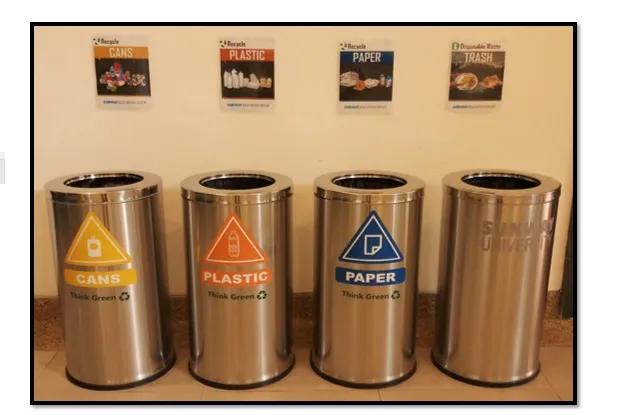Waste Separation

Sunway is committed to managing our waste responsibly and reducing our waste to landfills. We recognise the harmful effects waste can have on the environment – from GHG emissions to land and water pollution that can cause harm to wildlife.
As of 2020, our education sector diverted 13.9 tonnes of waste from landfills through recycling, repurposing, reusing and composting.
Sunway College and Sunway University collects and stores food waste to be sent to a vendor who uses Black Soldier Fly larvae and earthworms to break down the organic matter to form fertiliser. In 2020, 8,470 kg of food waste was collected across the Group to be composted by the vendor.
Sunway University contributed to the 24,876 kg of used textiles that were collected and recycled in 2020 across the Sunway Group through the Kloth Care Programme. These recycled textiles were donated to charitable organisations, exported to developing countries, reused as industrial wiping cloths and used as fuel for energy. This has helped to reduce the amount of fabric waste ending up in landfills and, in some ways, has also reduced the need for new textiles.
Any waste that cannot be recycled or recovered is responsibly disposed of according to local laws and regulations. Scheduled waste generated at our sites is closely monitored and managed as it is considered hazardous and may have adverse impacts on the environment and public health. We ensure that it is stored properly and transported to an approved facility by a licensed contractor prior to disposal.




